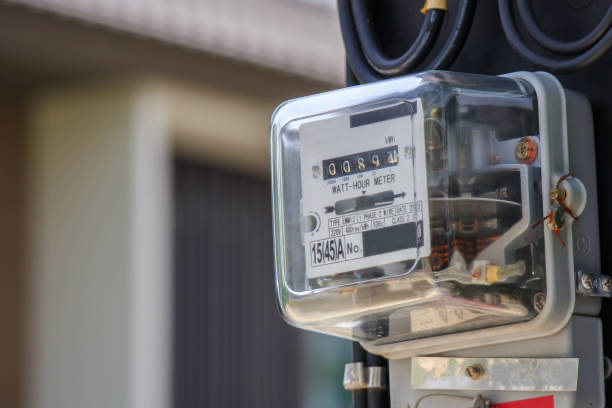Place your adverts here on InfoDig @ low rates; banner ads, sponsored links and guest articles etc. Contact us
United Bank for Africa (UBA) Plc has captured investors’ attention by declaring a record interim dividend of N2 per share for the first half of 2024, marking a 300% increase from the N0.50 per share declared in the same period of 2023.
UBA’s decision to declare such a significant dividend, despite a slight decline in profit after tax (PAT) and its fourth-place ranking in PAT among the FUGAZ (FBNH, UBA, GTCO Access and Zenith Bank), is both bold and appears strategic.
This move is also noteworthy, considering the Central Bank of Nigeria’s (CBN) directive that prohibits the use of foreign exchange revaluation gains; a major driver of profitability in the banking sector, for dividend payments.
By delivering such a large dividend amidst these constraints, UBA may be signalling confidence in its core operational performance and long-term financial health.
Alternatively, this could be a deliberate move to maintain investor confidence, particularly in a high-interest environment where shareholders might be tempted to shift toward fixed-income investments for more stable returns.
Dividend Growth and Payout Ratio
UBA’s dividend growth trajectory over the past five years, with a compound annual growth rate (CAGR) of 29.36%, underlines its consistent strategy of enhancing shareholder returns.
During this period (2019-2023), UBA paid a total dividend of N219.560 billion, representing an average payout ratio of 24.14% per year.
This performance is higher than the FUGAZ average dividend CAGR of 12.98%, although UBA’s average payout ratio is slightly lower than the FUGAZ average of 28%.
The bank’s retention ratio, at 76% on average, highlights its strategy of reinvesting a substantial portion of its profits to fuel future growth.
However, for the first half of 2024, UBA declared a payout ratio of 17.03%, which is significantly higher than the 4.24% from the same period in 2023 and above the FUGAZ average of 5.77%.
Dividend Signaling: Is UBA Sending a Message?
This large payout, despite a marginal 0.51% decline in profit after tax (PAT) from N403.647 billion in H1 2023 to N401.577 billion in H1 2024, reflects UBA’s resilience and confidence in its financial position.
By issuing such a significant rise in its interim dividend, UBA is likely conveying to the market its expectations of continued robust performance, even amidst challenging macroeconomic conditions.
This hypothesis is bolstered by the bank’s impressive performance metrics. UBA achieved a return on equity (ROE) of 41.2% in 2023, and it has set a 2024 guidance of 30%.
To further assess UBA’s sustainability, we can examine its sustainable growth rate (SGR), calculated by multiplying the ROE by the retention ratio.
In 2023, with an ROE of 41.2% and a dividend payout ratio of 16%, UBA’s SGR stood at approximately 34.6%.
This indicates that the bank has the potential to sustain its growth trajectory without overextending its resources.
Analysts have projected a 5-year net dividend growth rate of 27%
Given these metrics, it suggests that UBA can maintain or even exceed this rate of growth in 2024, provided it continues to exercise prudent financial management.
The substantial dividend could therefore be seen not just as a reward to shareholders but also as a strategic move to bolster investor confidence in the bank’s long-term prospects.
Impact on Share Price and Investor Sentiment
Dividend payouts have a direct impact on investor sentiment, and UBA’s 2024 interim dividend is no exception.
The impressive financial performance, combined with the substantial dividend declaration, is expected to bolster investor confidence and potentially restore UBA’s share price to levels seen in 2023.
In that year, UBA’s share price witnessed a remarkable 238% year-to-date gain, driven by strong earnings growth and overall market optimism.
However, by the first half of 2024, the share price had retraced by 12.48%, reflecting broader market trends and macroeconomic uncertainties.
As of the end of September 2024, UBA’s share price had regained 10.33% year-to-date, recovering from a 10.53% dip seen in August.
This recovery is largely attributed to the bank’s continued strong financial performance and the interim dividend announcement, which has served as a catalyst for renewed investor interest.
Most notably, UBA’s dividend yield stands at a remarkable 15.6%, the highest among the FUGAZ.
This makes UBA highly attractive to income-focused investors, especially in a high-interest-rate environment where yields from fixed-income securities may also be appealing.
A 15.6% yield not only highlights the bank’s strong financial standing but also enhances its competitive positioning in the banking sector by offering superior shareholder returns compared to peers.
This exceptional yield, combined with the capital appreciation prospects as UBA’s share price recovers, offers investors an enticing total return outlook.
In 2023, UBA delivered significant total returns, and with the combination of high dividend payouts and share price recovery, 2024 presents another opportunity for substantial gains.
Overall, UBA’s significant interim dividend for the first half of 2024 stands as a strong signal of the bank’s financial strength, commitment to rewarding shareholders, strategic positioning and a move to reinforce investor confidence and attract new investors, particularly in a high-interest-rate environment where yields play a crucial role in investment decisions.
As UBA continues to focus on growing its business and maintaining high dividend payouts, stakeholders should keep a close watch on the bank’s long-term performance and strategic moves, especially in its balance of growth and shareholder returns.














 English (US) ·
English (US) ·